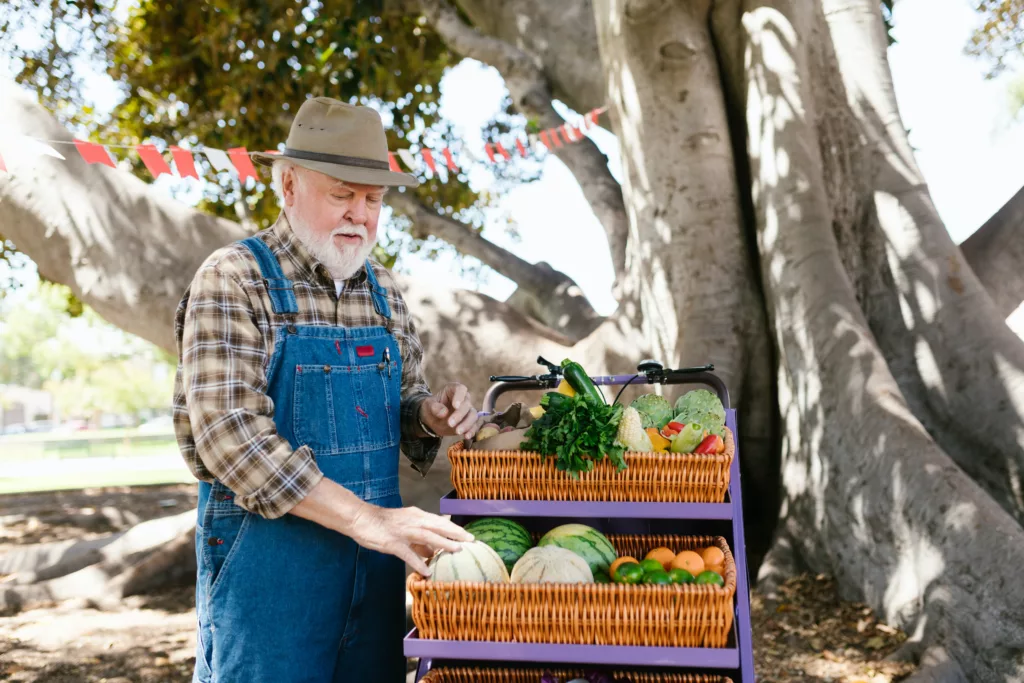National Farmers Market Week is more than just a celebration of local produce and farming traditions. In 2023, amid global climate crises and societal shifts towards conscious consumerism, its relevance has become increasingly evident. This article uncovers why National Farmers Market Week is vital and timely, underscoring the diverse benefits of farmers markets.

Growing Importance of Farmers Markets
The role of Farmers markets in local economies and food systems has grown dramatically over the years. Initially considered quaint weekend affairs where locals could secure their favorite fruits, vegetables, and handmade goods, these markets have evolved into critical cornerstones of local economies across the country. They’ve transitioned from being purely transactional spaces to venues that foster community engagement, cultural exchange, and crucial learning about our food systems.

One of the reasons for the meteoric rise of Farmers markets corresponds with the increasing demand from consumers for locally-sourced, organic produce. More people are realizing the benefits of consuming foods that are not only fresh and nutritious but also less damaging to the environment. By purchasing directly from farmers, consumers can secure these health benefits while also actively supporting the sustainability of rural economies. This direct contribution to local farmers’ livelihoods and the financial health of local economies makes the presence of Farmers markets invaluable.
The Sustainability Aspect
Farmers markets today have come to symbolize the essence of sustainability and conscious consumerism. For those aspiring towards zero-waste living, these markets offer a tangible way to reduce their carbon footprints. When consumers opt for local produce, they help reduce the need for long-distance food transportation, colloquially known as ’food miles’.

The model of direct selling also minimizes the need for excessive packaging materials, as farmers often favor simple, biodegradable packaging. Shoppers are encouraged to bring their bags, further promoting zero-waste living. Consequently, farmers markets actively help consumers cut down on the single-use plastics that are often unavoidable in supermarket shopping.
Furthermore, farmers markets often act as platforms that support and promote sustainable agricultural practices. In contrast to the environmental degradation often associated with large-scale industrial farming, local farmers tend to adopt practices that contribute to local biodiversity and soil health. This preference for organic, non-intensive farming methods not only enhances local ecosystems but also ensures the food sold is healthier and free from harmful synthetic chemicals. Therefore, farmers markets play an indispensable role in driving sustainable lifestyles.
Facing Global Challenges Head-On with Farmers Markets
In 2023, farmers markets’ significance extends far beyond local communities. Amid rising global temperatures, increasing instances of extreme weather events, and escalating rates of biodiversity loss, they provide much-needed hope. Farmers markets, with their low-carbon, biodiversity-enhancing, and community-centric model, are perfectly positioned to address these daunting global challenges.
Climate change, in particular, is a problem where farmers markets can make a real difference. By shortening the supply chain, they significantly cut down on greenhouse gas emissions associated with food transportation. With every local purchase, consumers can contribute to the mitigation of climate change.

In addition to their environmental role, farmers markets have emerged as potential solutions to socio-economic problems, such as food insecurity and rural unemployment. By providing a platform for farmers to sell their produce directly to consumers, they play a critical role in combatting food insecurity, and offering communities access to affordable, nutritious food.
On the economic front, farmers markets provide gainful employment opportunities within rural communities, stimulating economic growth and reducing unemployment rates. They help ensure that the financial benefits of agriculture stay within the community, rather than being absorbed by large corporations.
Celebrating National Farmers Market Week 2023

National Farmers Market Week 2023 serves as a week-long celebration of these essential markets and their critical role in our societies. It’s an opportunity to extend our gratitude to the hardworking farmers who provide us with fresh, local produce throughout the year. The week is filled with a variety of activities, events, and initiatives designed to highlight the work of these farmers and their impacts on their markets.
This year’s celebrations are particularly poignant as they carry a potent message – recognizing the role of farmers markets in building resilient, sustainable food systems. It’s a call to citizens and policymakers alike to appreciate the value these markets bring to our tables and communities.
Joining in the festivities, whether by visiting your local market, participating in an event, or simply choosing to purchase local produce, can make a huge difference. It’s a concrete way to support your local farmers and contribute to the important mission they’ve undertaken.
Takeaway
The importance of National Farmers Market Week 2023 lies in its acknowledgment of farmers markets’ multifaceted role. Amidst an era of global crises and transformative consumer trends, these markets remain bastions of sustainability, economic resilience, and community spirit.
Join us in celebrating National Farmers Market Week 2023. Support your local farmers, embrace conscious consumer choices, and play your part in creating sustainable, resilient food systems for all. Every purchase makes a difference.
Ready to continue your conscious consumer journey beyond National Farmers Market Week? Visit our website today and explore a wide variety of sustainable products that align with your values and help support a healthier planet. Make a difference with every purchase. Start shopping now!







